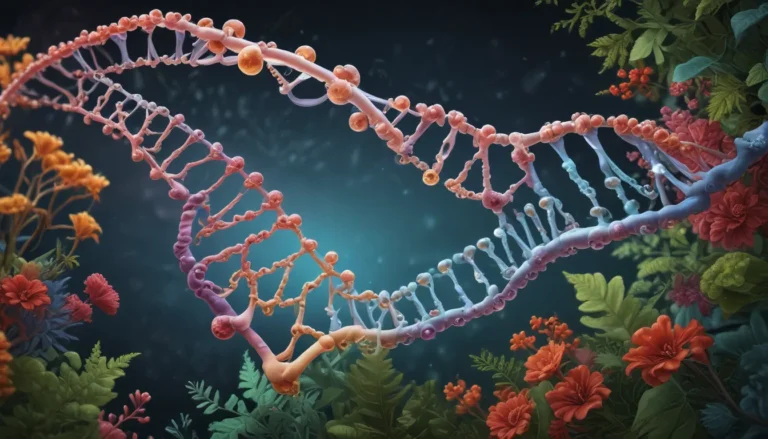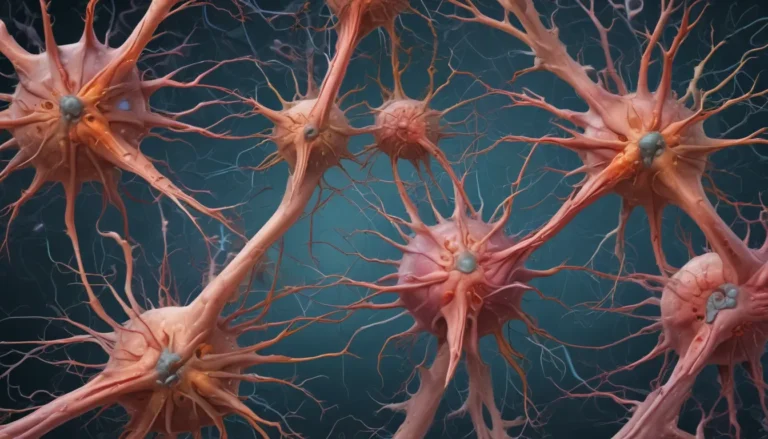A Note About Images: The images used in our articles are for illustration purposes only and may not exactly match the content. They are meant to engage readers, but the text should be relied upon for accurate information.
Stem cells have revolutionized the field of biology and medicine, offering hope for treating diseases, regenerating damaged tissues, and unraveling the complexities of human development. These extraordinary cells possess the remarkable ability to differentiate into various cell types and self-renew, making them invaluable in research and therapeutic applications.
Unlocking the Potential of Stem Cells
- Stem cells are akin to superheroes, capable of transforming into different cell types, paving the way for innovative therapies that revolutionize the future of medicine.
- Scientists are harnessing the power of stem cells to grow organs, understand aging, and develop cutting-edge treatments for a wide range of conditions.
The Marvel of Differentiation
Stem cells hold a unique ability to differentiate into specialized cell types such as neurons, muscle cells, and skin cells. This pluripotency offers immense potential for regenerative medicine and the treatment of various diseases, showcasing the versatility of these remarkable cells.
The Revolutionary Discovery
In the mid-20th century, scientists identified and isolated stem cells, leading to groundbreaking advancements in research and unlocking the secrets of human development and tissue repair. This pivotal discovery has paved the way for transformative breakthroughs in the field of medicine.
The Diversity of Stem Cells
Contrary to popular belief, stem cells are not solely found in embryos. Adult stem cells exist in organs, bone marrow, and even teeth, playing a crucial role in tissue maintenance, repair, and regeneration. This diverse range of stem cells underscores their importance in various biological processes.
The Promise of Cutting-Edge Therapies
Researchers are exploring the use of stem cells to treat a myriad of diseases, including Parkinson’s, Alzheimer’s, diabetes, and spinal cord injuries. These innovative therapies offer hope for patients facing conditions that were once considered incurable, showcasing the remarkable potential of stem cells.
Ethical Advancements with iPSCs
Induced pluripotent stem cells (iPSCs) offer an ethical alternative to embryonic stem cells by reprogramming adult cells to mimic embryonic stem cells’ behavior. This breakthrough allows scientists to generate pluripotent cells without utilizing embryos, addressing ethical concerns and expanding the scope of stem cell research.
The Practice of Stem Cell Banking
Stem cell banking enables individuals to store their own stem cells for future use, offering personalized treatment options down the line. Techniques like cord blood banking are gaining popularity as a form of medical insurance, ensuring access to valuable stem cell resources when needed.
Revolutionizing Organ Transplantation
With a shortage of donor organs, stem cell research presents a promising solution by exploring the creation of organs in the laboratory. Scientists are making strides in growing functional tissues like liver and kidney cells, offering a potential resolution to the organ transplantation crisis.
Healing Powers of Stem Cells
Stem cells play a pivotal role in tissue repair and wound healing by being recruited to damaged sites to initiate the healing process. Their ability to differentiate into essential cell types aids in promoting faster and more effective healing, highlighting their therapeutic potential.
Unraveling the Secrets of Aging
The study of stem cells offers promising insights into understanding the mechanisms behind aging. Scientists believe that decoding stem cell aging could lead to interventions that slow down or even reverse the aging process, shedding light on fundamental processes that impact health and longevity.
In conclusion, stem cells represent a remarkable frontier in medical research and treatment, holding immense potential for regenerative medicine and disease cures. As stem cell therapies continue to advance, they offer hope for addressing a wide range of conditions, from leukemia to spinal cord injuries. While ethical considerations and challenges persist, ongoing research and innovation in stem cell biology promise a transformative impact on the future of healthcare.
FAQs About Stem Cells
-
What are stem cells?
Stem cells are undifferentiated cells with the unique capacity to differentiate into specialized cell types, making them invaluable in regenerative medicine. -
What types of stem cells exist?
There are various types of stem cells, including embryonic, adult, and induced pluripotent stem cells, each with distinct characteristics and applications. -
What medical conditions can stem cells potentially treat?
Stem cells hold promise for treating a wide array of conditions, including spinal cord injuries, neurodegenerative diseases, heart disease, and diabetes, with applications in tissue engineering and drug testing. -
Are there ethical concerns surrounding stem cell research?
Yes, the use of embryonic stem cells raises ethical considerations due to their origin from embryos. However, alternative sources like adult stem cells and induced pluripotent stem cells offer ethical alternatives. -
Is stem cell therapy currently available?
Stem cell therapy is in early development stages but has shown promise in certain conditions. Ongoing research aims to further explore the safety and effectiveness of stem cell treatments. -
What risks are associated with stem cell therapy?
While promising, stem cell therapy carries potential risks such as immune rejection, tumor formation, and uncontrolled cell growth. Stringent research and regulations aim to enhance safety and mitigate these risks. -
Are stem cells used for cosmetic purposes?
Some clinics offer stem cell-based cosmetic treatments, but their safety and efficacy lack widespread scientific support. Caution and consultation with reputable medical professionals are essential when considering such treatments. -
How can individuals contribute to stem cell research?
Supporting stem cell research can involve donating to reputable organizations, participating in clinical trials, staying informed about advancements, and advocating for ethical research practices to drive positive change in the field.
Stem cells continue to captivate the scientific community with their extraordinary capabilities and potential applications in revolutionizing medicine. As research and innovation progress, these incredible cells offer a glimpse into a future where regenerative therapies and personalized treatments may redefine the landscape of healthcare. Explore the wonders of stem cell differentiation, research, and therapies to unlock the limitless possibilities that these remarkable cells hold for shaping the future of medical science and patient care.





